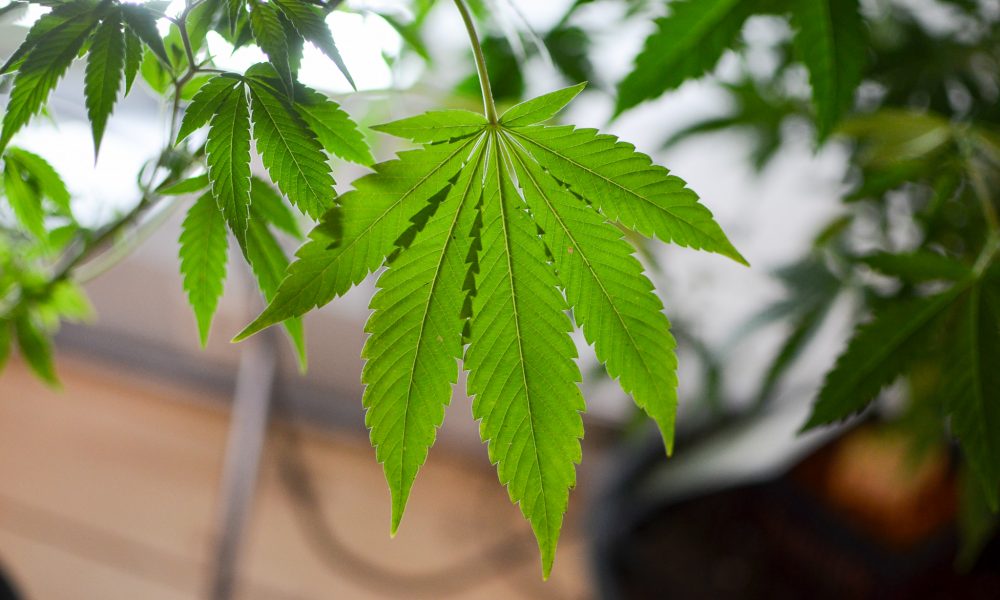As advocates work to once again put marijuana legalization on South Dakota’s ballot, a Republican activist has filed a pair of initiatives to repeal the state’s medical cannabis law and keep federally banned substances from ever being legalized by voters.
The state attorney general released the draft ballot explanation for the medical marijuana repeal measure on Friday, opening a public comment period. The second initiative from Travis Ismay, which contains a typo on the proposed title (using the word “band” instead of “banned”), will likely need to be revised and resubmitted, as the Legislative Research Council (LRC) identified a number of potential issues with its language.
For Ismay’s medical marijuana repeal proposal, Attorney General Marty Jackley (R) is not taking a position, but his office is statutorily obligated to provide a neutral explanation. The initiative would “make all possession, use, cultivation, sale, manufacture, sale of marijuana, and marijuana products a crime.”
“This initiated measure does not affect laws dealing with hemp,” the explanation, which is open for public comment through August 6, says. “Marijuana remains illegal under Federal law.”
The petition itself is several pages long, as LRC required that it display a full strikethrough of every provision of the state’s existing medical cannabis law.
In order to qualify for the 2024 ballot, the initiative must receive at least 17,509 valid signatures.
Meanwhile, LRC is recommending that Ismay make several changes to his separate proposal. The draft ballot summary that he originally submitted read: “We will not allow the legalization of federally band [sic] substances on our ballot.”
First, LRC said that the use of the pronouns “we” and “our” are confusing. Also, it said ballot measures should generally be written in the past tense. LRC further advised that the summary should explain how it would impact the three different types of items—constitutional amendments, proposed laws and referred laws—that can appear on the ballot.
“The sponsor may want to consider defining certain terms used in the proposal to assure clarity and precision of meaning,” LRC said. “It may add clarity to provide a definition for ‘federally banned substance.’”
Further, it said that it may make more sense to resubmit the revised initiative as a constitutional amendment, rather than a proposed statutory law.
If Ismay is able to gather enough signature to qualify either measure, its seems unlikely that voters would go along with it at the polls considering that the medical marijuana measure that appeared on the 2020 ballot was approved overwhelmingly, with nearly 70 percent of the vote.
That said, voters did reject an adult-use cannabis legalization ballot measure last year.
Advocates say low turnout during a midterm election and insufficient funding were largely to blame for the defeat, and they’ve expressed optimism that the voters will enact the reform if they qualify it again for the 2024 ballot.
The initiative would allow adults 21 and older to purchase and possess up to an ounce of cannabis. They could also grow up to six plants per person for personal use, which is up from three plants in the last version. There’s also a 12-plant maximum per shared living household.
An earlier 2020 legalization proposal was approved by voters before being invalidated by the state Supreme Court amid a legal challenge led by the governor.
—
Marijuana Moment is tracking more than 1,000 cannabis, psychedelics and drug policy bills in state legislatures and Congress this year. Patreon supporters pledging at least $25/month get access to our interactive maps, charts and hearing calendar so they don’t miss any developments.![]()
Learn more about our marijuana bill tracker and become a supporter on Patreon to get access.
—
Ahead of last year’s election, a poll found that 51 percent of South Dakotans planned to vote against the legalization measure, while 40 percent said they’d be supporting it and 10 percent remained undecided. That was the third poll in a row showing the legalization measure behind.
In 2021, Gov. Kristi Noem (R) tried to get the legislature to approve a bill to delay implementation of the medical cannabis program for an additional year, but while it cleared the House, negotiators were unable to reach an agreement with the Senate in conference, delivering a defeat to the governor.
In response, her office started exploring a compromise, with one proposal that came out of her administration to decriminalize possession of up to one ounce of cannabis, limit the number of plants that patients could cultivate to three and prohibit people under 21 from qualifying for medical marijuana.
In the 2022 legislative session, the House rejected a legalization bill that the Senate had passed, effectively leaving it up to activists to get on the ballot again.
A Marijuana Interim Study Committee, headed by legislative leaders, was established to explore cannabis policy reform, and the panel ultimately recommended that the legislature take up legalization. The House-defeated legislation was one of the direct products of that recommendation.
Top Federal Health Officials Say Psychedelics’ Schedule I Status Creates ‘Hurdles’ To Studying Them
Photo courtesy of Philip Steffan.
Read the full article here

